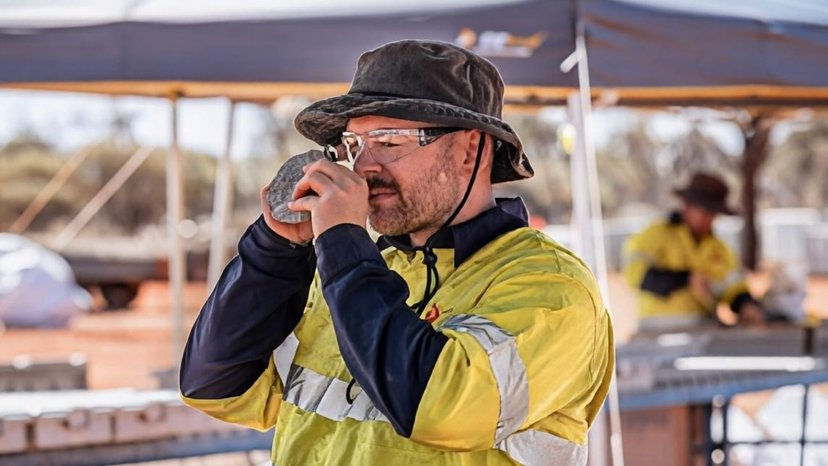Aruma gets good sighter on Mt Deans lithium potential
- Matt Birney

- May 3, 2023
- 3 min read

Aruma Resources has produced lithium concentrate from early metallurgical testwork at its Mt Deans project, 10km from the WA town of Norseman.
Floatation works have recovered 80 per cent of the lithium into 25 per cent of the mass, with capture of tantalum, tin, potassium, rubidium and caesium giving the prospect of valuable additional by-products. Initial testwork was undertaken on RC drill chips and the company indicated a possible slimes increase and a reduction in the recovery of metals.
But further testwork will now be pursued after Aruma collected fresh outcropping pegmatite samples. The company is expecting higher concentrate grades and recoveries from the work.
The aim of Aruma’s “sighter” metallurgical testwork was to establish what kind of product could be recovered from the Mt Deans pegmatite ore and to direct the first step towards project development. Two separate floatation tests were conducted using RC drill chips, with results confirming that a lithium concentrate can be produced.
The tests also showed promising upgrades to metal concentrations for tantalum, tin, potassium, rubidium and caesium. Aruma said the potential value of the tin and tantalum was highlighted by the program.
Although the floatation tests had a long run time, importantly, recoveries did not increase past six minutes. The lithium oxide concentrate grade of 2.64 per cent indicates a possible grade above 3.5 per cent if a higher-grade sample was used for the testing.
Rubidium and potassium also concentrated more than three times in the testing process, while more than half of the tin and tantalum reported to the coarse tails, indicating a possible affinity for gravity separation.
Mt Deans was first a tin mine in the 1940s before it then became a tantalum project. In 2002, Tantalum Australia announced a resource at Mt Deans of 9.1 million tonnes at 0.022 per cent tantalum pentoxide, 0.060 per cent niobium pentoxide and 0.170 per cent tin oxide, based on the results of 157 drill holes within 60m of the surface.
The tin mineral was noted as cassiterite, with tantalite being the tantalum mineral present. Clearly this resource is unlikely to meet JORC 2012 standards, but it is indicative of the importance of tantalum and tin to the project economics.
The Geological Survey of WA Mineral Resources Bulletin 22 describes the Mt Deans pegmatite field as a swarm covering an area of about 5km in a north–south direction and 2km in an east–west direction. The pegmatites are observed to be highly-fractionated with respect to elements such as lithium, rubidium, and caesium and are thought to have emanated from the late-phase Archaean Dundas Granite.
The bulletin noted that the Mt Deans pegmatites appear to resemble Greenbushes pegmatites, in as far as there is no quartz-core development and virtually no low-grade tantalum zones are present, only higher grade.
These sighter test-work results give us a great deal of confidence in the potential value we see at Mt Deans. To deliver a first pass concentrate of 2.64% Li2O with another 0.6% Li2O in the slimes, provides confidence that flotation works and that Mt Deans could deliver a typical lepidolite concentrate of around 4% Li2O. The upgrade in the grade of all metals from this very early-stage testing shows us that further work to establish what may be achieved with the Mt Deans pegmatite is the key to realising the Project’s full potential. Aruma Resources managing director Glenn Grayson
Mt Deans sits in the Eastern Goldfields region and in the Yilgarn Craton. The lithium belt stretching from there up to Kalgoorlie contains the major spodumene lithium deposits at Mt Marion, Bald Hill and Buldania.
The project is in the lithium mica mineral lepidolite and has a strong tin and tantalum co-product association. It means the metallurgy and commercial products are a bit different, hence the importance Aruma has rightly placed on these aspects.
Is your ASX-listed company doing something interesting? Contact: office@bullsnbears.com.au


